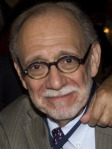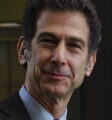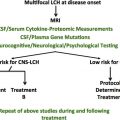
Bob received his MD and PhD from the University of Rochester and completed his residency in pediatrics at Boston Children’s Hospital. He was then a fellow in pediatric hematology and oncology in the combined program at Boston Children’s and Dana-Farber Cancer Institute, where many of us first came to know him. There followed a series of major leadership roles in pediatrics and pediatric hematology/oncology, including division chief at Cincinnati Children’s Hospital Medical Center, then King Fahd Professor of Pediatric Oncology, and director of the division at Johns Hopkins School of Medicine. In 2013, he moved to the University of Arizona, where he was Professor of Pediatrics, Director of the Children’s Center for Cancer and Blood Disorders, and Co-Director of the Ron Matricaria Institute of Molecular Medicine at Phoenix Children’s Hospital. The latter position was very important to Bob, who had become increasingly interested in using the molecular abnormalities of malignant disease to guide precision therapy. Bob was also committed to the pediatric oncology community and provided guidance and leadership to entities such as the Children’s Oncology Group, the Children’s Cancer Group, the Pediatric Oncology Group, and the St. Baldrick’s Foundation, where he was on the Board of Directors and chair of the Scientific Advisory Committee.
At the time of his death, Bob was editor-in-chief of Pediatric Blood and Cancer . He had also served as editor-in-chief of the Journal of Pediatric Hematology/Oncology and associate editor of the Journal of Pediatrics . He was co-editor of several influential textbooks, including Pediatric Hematology , Molecularly Targeted Therapy for Childhood Cancer , Cancer Genomics: From Bench to Personalized Medicine , and section editor for the neoplastic disorders portion of Rudolph’s Pediatrics .
In addition to all of these accomplishments, Bob was a charismatic figure who could twist your arm in the name of a good cause and get you to work hard on one of his projects all the while thinking it was your own idea to participate. Most famously and wonderfully, he helped direct the Nikolas Symposium, a yearly “think tank” held in Greece and devoted to advancing the understanding and treatment of the histiocytoses. Founded by Paul Kontoyannis and his family, the Symposia are named for Paul’s son Nikolas, who had Langerhans cell histiocytosis as a child and now suffers from its sequelae. The Symposium, which recently held its 25th annual meeting, is designed to attract a small number of scientists and clinicians from widely diverse fields to talk about this challenging and enigmatic disease.
Getting prominent and busy people to commit to meeting in Athens for a week about a rare disease is a daunting task, but Bob was exactly the right person for the job. His buoyant enthusiasm, infectious laugh, and undiminished curiosity motivated everyone to participate at their highest level. It also didn’t hurt that Bob was an unabashed dancer and a vigorous if not always tonally precise singer. He was instrumental in turning the social events at the Nikolas Symposia into memorable and, frankly, legendary nights.
Bob also had enthusiasms that he loved to share. One was for opera. Another was for motorcycles, about which he famously said that all other vehicles are “just transportation.” We will miss Bob terribly. The world is a better place for his having been part of it, and we are better people for having known him.
Stay updated, free articles. Join our Telegram channel

Full access? Get Clinical Tree





